Karni Liddell: ‘A Paralympic official tried to rape me’
“Did the man I paid to teach me self-defence skills to protect me from men just grope me? Yes, he did.” This is just one sorry story as 14 powerful and prominent Queensland women share their devastating experiences of sexual harassment.
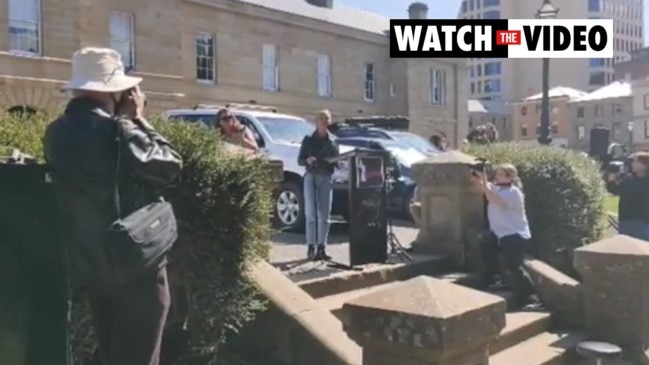
QWeekend
Don't miss out on the headlines from QWeekend. Followed categories will be added to My News.
These extraordinary Queensland women speak with one voice, telling Frances Whiting their stories of sexual harassment, discrimination and abuse.
All are told with courage and honesty, in the hope of sparking change, and all can be summed up with one word. Enough.
Karni Liddell, Paralympian
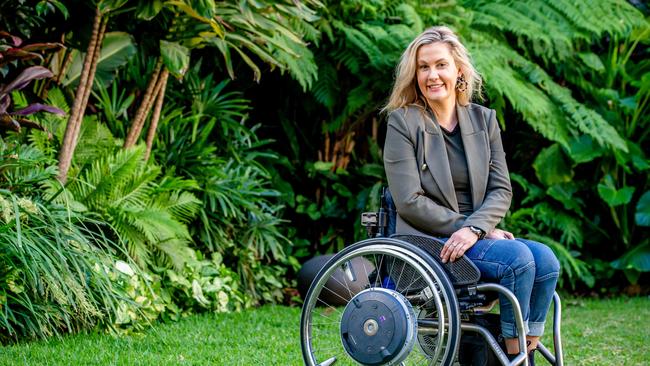
I use a power-assist wheelchair for longer distances (or for good parking).
The reason I use an electric wheelchair is because my muscle wasting disease affects my whole body, including my arms.
Therefore, sitting in my wheelchair I’m about four feet tall and when approached by most men they tower over me and I’m acutely aware that women with a disability are twice as likely to experience sexual violence.
I’m only comfortable sharing these two stories.
I was once pushed out of my wheelchair backwards by a Paralympic official who intended to rape me and I was saved by one of my teammates.
I was drugged at a uni party and my best friends found me just in time after my perpetrator pushed me out of my wheelchair into a garden and I woke up with a busted lip and black eye.
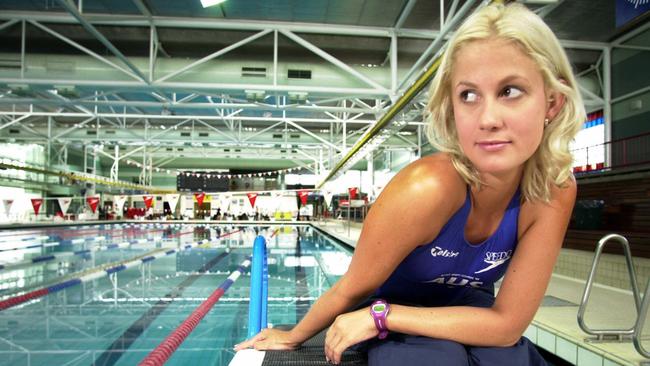
I’ve been stalked and I am not willing or able to talk about this traumatic and terrifying year.
I would never wheel anywhere by myself at night.
The question I was asked to answer is when do I feel unsafe?
I feel unsafe everywhere unless I’m with my family, my friends or my two female support workers.
I’ve been told I come across as a fierce, brave, assertive woman and I think I wear this mask to disguise my disability and the fact that I’m weaker physically than most people.
I don’t feel safe catching a plane, going to a theme park, going to a pub, or really going anywhere where a human has the power to reject me entry as I’m perceived as the riskiest person in the room to support, serve or employ as I know I will have to fight … again.
I am so fatigued of the fight … after being on fight mode for 42 years living with a disability I’m now triggered by the fight and if it wasn’t for wanting my son to live a big, full life of adventures I would avoid places where I know I am going to have to switch on my FIGHT switch.
I carry a Swiss Army knife in my wheelchair bag.
I am petrified of getting into wheelchair maxi taxis, as I know they are going to ask me personal questions about my disability and I’ve been kicked out of at least five maxi taxis for not answering these inappropriate questions. The drivers have complete control and power over me getting out of the cab. (I always pretend to be on the phone to my pretend hubbie. Robbie Williams, when in a maxi taxi).
Frances Whiting, Sunday Mail journalist and author
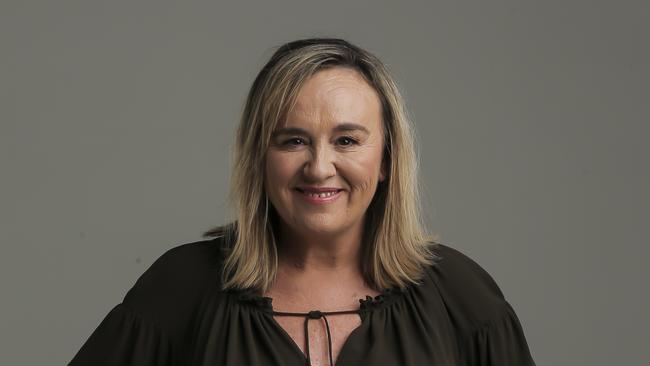
Text me when you get home: six words every woman I know knows very well.
Because we say them to each other all the time; at the end of a night out, as we are getting into our cars, or our cabs, or walking home in the gathering dark.
For women who grew up in the age of telephone landlines, we had six different words: “Three rings when you get home”, but the message, across the decades, is the same.
It says “Tell me you’re safe”. “Tell me you made it home”. “Tell me, by your silence, if you’re in some kind of trouble.”
We don’t send each other these messages because we are frightened creatures scared of our own shadows, we send them because we are realistic.
And when we hear of another girl who didn’t come home, we look at each other with knowing eyes.
This time it was Sarah Everard; bright, world-at-her-feet Sarah, the 33-year-old Londoner who recently went missing after walking home from a night at a friend’s house, her body found a week later, her alleged killer a serving police officer.
We hear these stories and we sigh, or we get angry, or we think of our own Sarah Everards – Sharron Phillips, Anita Cobby, Eurydice Dixon, and all their other now silent sisters. And so we send those six-word texts to each other, not because all men are dangerous, but because some are.
When we march for justice, when we wave our placards, or when we simply say “enough”, we are not doing so because we are – as Pauline Hanson et al would have it – “man-haters”. Quite the contrary.
We do it because we know that the only way things may change is if we raise our voices and tell our stories.
Stories not just of feeling terror at the sound of quickened steps behind us, but of being touched where we don’t want to be touched, of being called names, of being taunted, or mocked, or silenced – of being made to feel less than.
Today, a remarkable group of Queensland women you may know, or know of, are telling their stories, and for some of them, deciding to do so wasn’t easy. But all of them chose to go ahead, to share their story of just what it is we’ve had “enough” of.
Here’s mine.
When I was a teacher in London, a man followed me from the school I was teaching at in the East End to the tube station, into my train carriage, up escalators and down the street through the shops. It was winter, it was dark and I didn’t have a mobile phone because there weren’t any back then.
I decided not to walk all the way but to ring my flatmate instead and ask him to come and meet me. When I got into the phone booth, the man got in behind me and put something against my neck. I don’t know what it was, if it was a knife, because I started yelling “GET OUT, GET OUT” at the top of my voice.
He got out. I never saw him again. But I could tell you all these years later what he looked like, what his steps sounded like, and exactly how he smelt. Because I still know. I don’t know what would have happened if I had not raised my voice that night, and that’s one of the reasons I’m raising it now. It’s why we all are.
Katarina Carroll, Queensland Police Commissioner
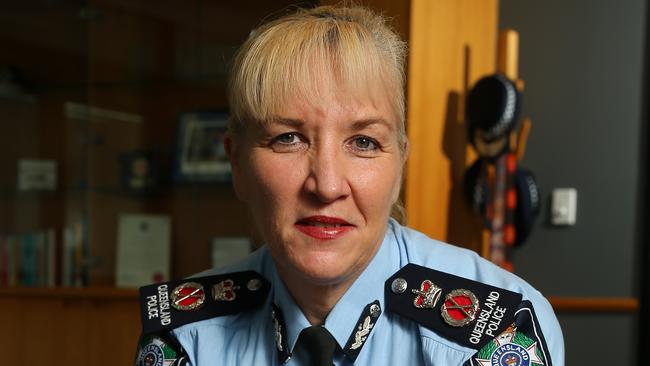
While on patrol as a 19-year-old first-year constable, an older and more senior male colleague drove and parked in pitch black bushland at the start of our shift at midnight.
He stopped the vehicle and said I should join him in the back seat as this was expected of female first year constables. This guy was massive and intimidating, and I was terrified.
In a panic I jumped out of the car and started walking in pitch black back to the station which was 20km away. I had no idea where I was going. In anger he returned to the driver’s seat and silently drove us both back to the station. I was young, vulnerable and terrified this was going to ruin my new career.
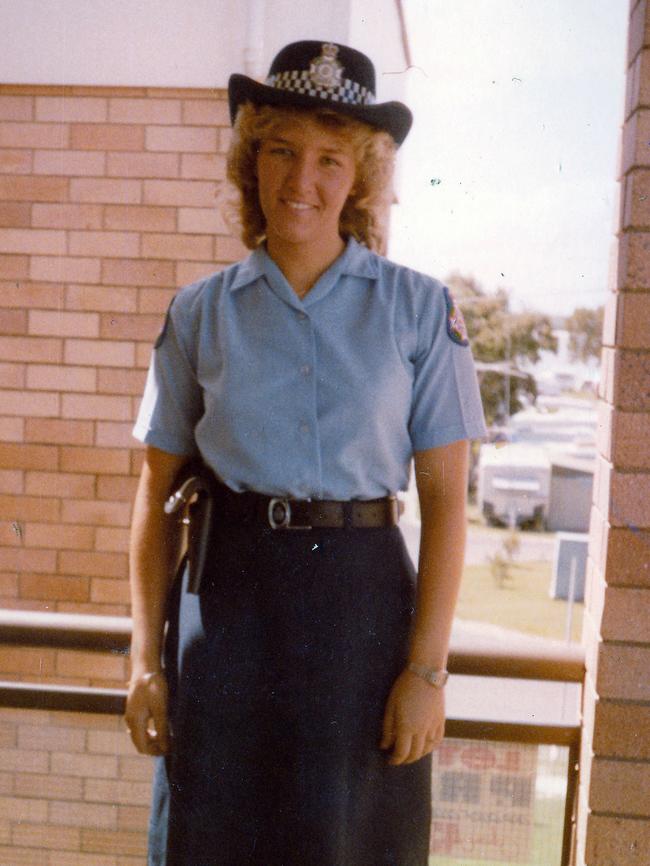
As I was in quite a state I thought I would mention to some of my colleagues what had occurred just to get it off my chest. Little did I know this was the best decision ever as he was confronted by them for his behaviour and I was never rostered with him again.
I appreciate others’ experiences may be different to mine but I truly believe you need to find your voice, so others can support you.
Cheryl Vardon, Queensland Family and Child Safety Commissioner
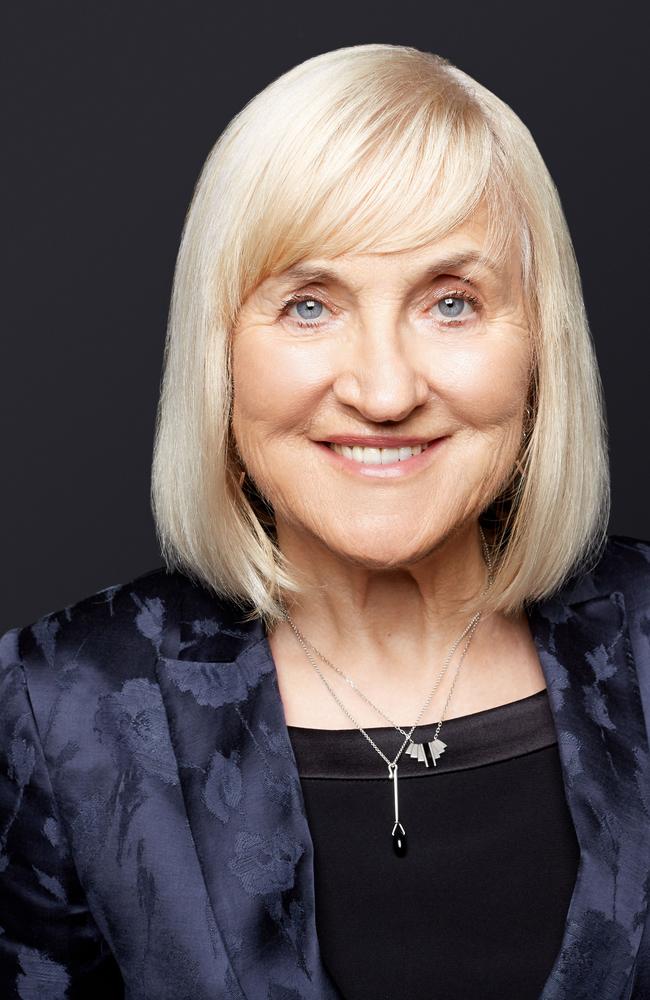
Once, walking home from uni late at night along a deserted suburban street, I realised I was being followed … I took off my shoes and ran for my life along the middle of the road. My feet were cut but I was safe. I still look behind and around me at night on a footpath even with company.
Some years later, I went to a gathering at the Australian Embassy in Paris. I got into a taxi to go home with a girlfriend and an eminent man. My girlfriend got out first. The man made a lunge for me, which I deflected. He came off second best and I made the fastest ever exit from the moving taxi.
One chap said to me after I beat him for a top job: “Well if I had known it was an affirmative action appointment I would not have bothered.”
Emily Jade O’Keeffe, radio presenter
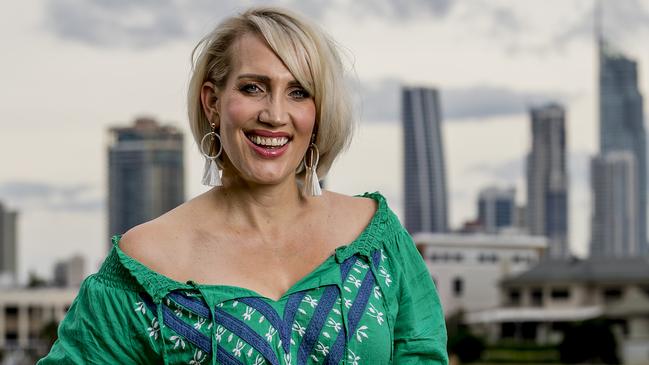
I run with only one earphone in, so I can hear if someone is running behind me.
I walk from car in the morning to the studio with my keys threaded in my fingers because it is dark.
I was once straddled in a lift by a program director when I went for a job. After the interview, he offered to walk me to my car. That sounded kind at the time. When we got in to the elevator he threatened to press stop and said if I gave him oral sex, I would get the job. I pushed him away with a nervous laugh, and said “You must be joking”. I still, to this day, hate that I just didn’t knee him where it hurts. But I was scared. He then harassed me for weeks with vile text messages, saying he knew where I lived and could he pop by and get what he had asked for. I ended up going overseas because I was so distressed about his harassment and his power in the radio industry, and I felt there was no way I would get a job in the city I loved. For the record, I did in the end. Now I am supported and respected by good men in my industry. But that man went on to work at three different radio stations. They just kept moving him around as the complaints came. I was by no means the only female he targeted
Kay McGrath, TV presenter, anti-DV advocate
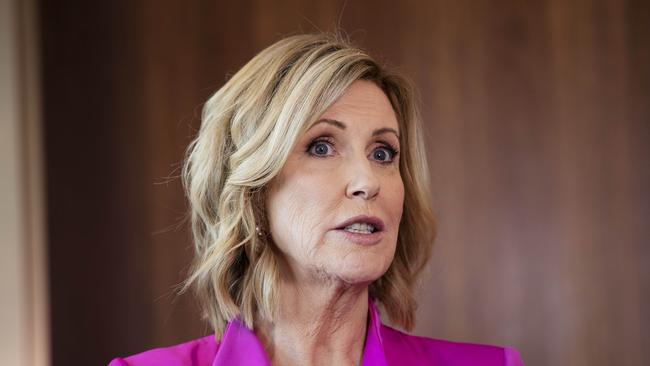
The television and entertainment industries are still littered with colourful stories of misogyny and bullying.
When I was a young and naive reporter I’d often have my confidence undermined by senior men telling me I should “stick to the soft stories” or that I needed to style my hair differently or wear lower necklines to attract more viewers.
These days, male bosses can still rate women by style and appearance rather substance.
Currently, as Co-Chair of the Domestic and Family Violence Prevention Council I see and hear survivor’s stories that break my heart. Worse still, many women don’t realise they’re being controlled and manipulated.
Every woman has the right to be valued for who she is.
The right to an opinion and most importantly, the right to feel safe.
Sadly, those rights are often snatched away by a controlling man.
Robin Bailey, radio presenter
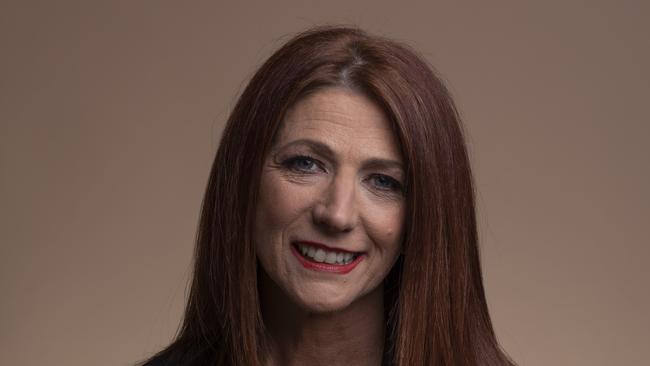
When I started it was a rarity to see any woman in any key positions.
Wendy Harmer was really the first woman to break through on the commercial radio scene in a record beating way on air, and that was in the early 90s. At that time I was a young D-grade journalist trying to make it in a big Sydney radio newsroom of 15 journalists.
There were only two women – myself and a more senior news reader, so we were rarely rostered on together.
The rotating news directors ranged from old school cranky hard news types to young up-and-coming hungry news hounds. There was one guy, some one senior and older. When I asked him what I could do for him (that was my job, to do a lot of the menial tasks), he’d say: “I want you to get up on that desk, take all your clothes off and bend over.”
Sometimes, if the laugh was big enough from the other blokes hanging around, he’d also ask me to dance.
I was 19. I was inexperienced and I was humiliated so I’d do that nervous laugh while my face went red and I tried not to cry tears of utter shame.
I lasted in that job for a year before moving on and not once did I find the courage to say please stop and he never did.
For women in radio, things have really changed, but it’s only been in the past five years that it has become acceptable for two women with no man on air. Yes it’s about rates.
When I leave the studios every day and contemplate where I will go for my afternoon run, the wonderful tracks of Mt Cooth-ta are not advisable because I don’t feel safe running on my own as a single woman. Why? Because, as one police officer advised: “Don’t run, even in broad daylight – anywhere where if you screamed no one would hear you.”
Melissa Downes, newsreader
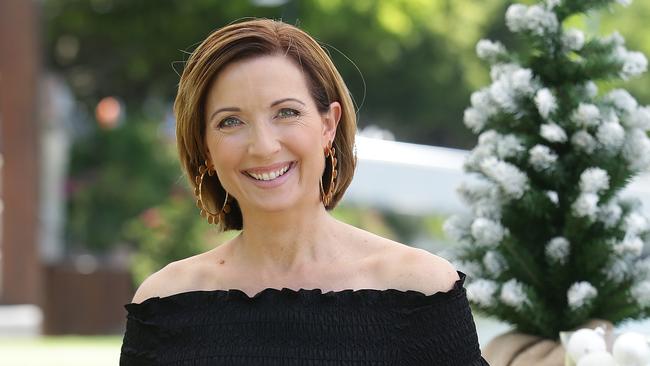
Strike up a conversation with any group of women and one, if not more, will have a story about sexism, misogyny or violence.
Examples of it are frequently in our news bulletins, and it rocks me every time, especially in the most extreme cases – Hannah Clarke, Allison Baden-Clay and Tara Brown to name just a few.
Their deaths put fear in all of us, and every time we ask: “How has this happened again?”
Right now, we’re all trying to figure out how to change the ending of stories like theirs.
Talking about it is the first step. In my early days in the newsroom, these were not the stories we told. There was a certain attitude that they were private, family matters.
Thankfully things have changed and some of the most important stories I’ve been part of are those relating to domestic abuse. Talking to families as they grieve and grapple to understand.
Talking to survivors, hearing their stories … learning from their experiences.
Talking to the organisations that work every day to help women, and men, in need.
There are so many stories to tell, it’s overwhelming – and I think that’s why the March 4 Justice resonated across the country, because it gave people an opportunity to raise their voice.
Nina Schrinner, Lady Mayoress
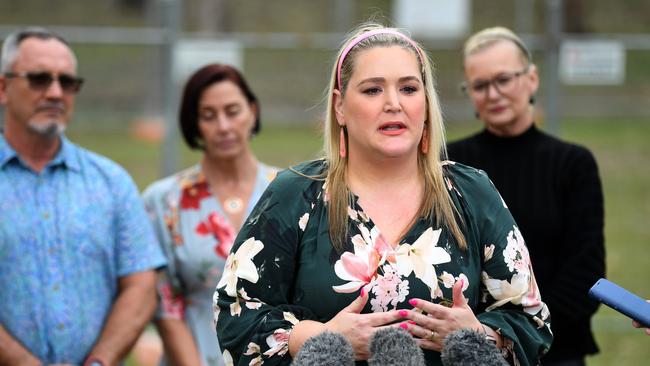
My awareness that terrible things could happen to women occurred early in my life.
My parents were fanatical about our personal safety.
When I first started driving at 16 years old, a condition of my licence was I never allowed the car to run low on fuel, so I didn’t “end up murdered like Sharron Phillips”.
My parents would always arrive very early to pick me up from the train station as they didn’t want me to “end up like Anita Cobby”. The fear of what tragically happened to these two women wove its way into my life, always present, informing all my decisions in a subconscious way.
The ingrained fear meant I could never let my guard down, and kept me on guard against “date rape”.
Why? It had happened to a family friend. As a result, we would never leave a friend alone on a night out.
We would take responsibility for our girlfriends returning home safely.
We would always travel as a group. Sadly, personal safety is such a normal thing for women of all ages to worry about.
One thing I am grateful to my parents for is they always apportioned the blame exactly where it belonged – with the perpetrator.
They did, however, teach me to take practical responsibility for my safety to limit my exposure to danger.
I will pass these lessons on to my own children.
Having said all of this, I truly believe the vast majority of men are not part of the problem, but every man can be – and must be – part of the solution.
Laurel Edwards, broadcaster and singer
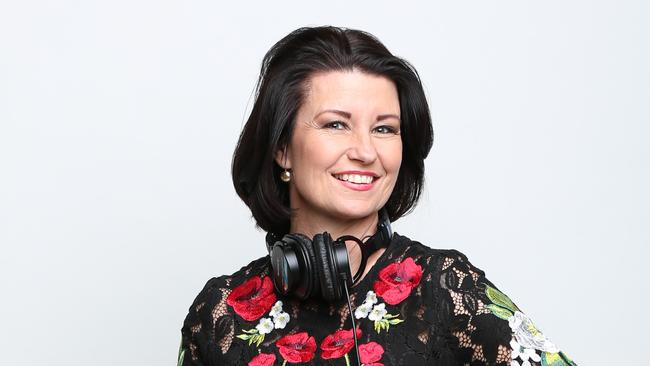
I had a confronting incident happen to me only a few weeks ago.
My husband Troy Cassar-Daley, myself and the kids were in Grafton for his aunty’s 60th birthday weekend.
The big party was at midday at a local hotel.
Waking at 4am weekdays for breakfast radio, come the weekend I usually get ready to relax and catch up on sleep, so come 4pm I hit a wall and decided to walk back to the motel, literally around the corner in the main street.
The streets of South Grafton on a Saturday afternoon are fairly quiet, like most small towns, but as I rounded the corner and had the motel in my sights a car full of young men drove past and yelled out something inaudible.
They slowed down and then did a U-turn and came back to me. I didn’t realise what was happening until they pulled up next to me and offered me a lift.
I then got a good look at the four young guys in their late teens or early 20s.
I said ‘No thanks’ and kept walking, grabbing my phone from my bag, and made it obvious I was calling someone.
My heart was racing as I turned into the motel driveway only 50m away. Once safely inside the motel room, I couldn’t help but reflect on what could have been and what their intentions were, and that something like this is happening, not in some dark laneway or 2am walking home from a nightclub but in broad daylight on a residential street. Sure, they may have been innocently cruising, but that’s exactly what Anita Cobby’s killers said they were doing before abducting that poor innocent girl.
Sharyn Ghidella, journalist and TV presenter
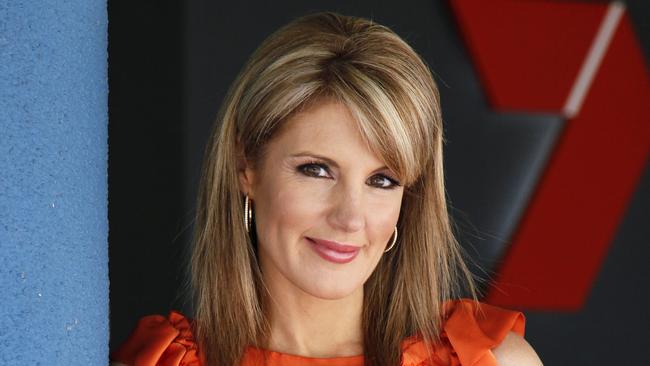
For more than 10 years I worked on breakfast TV in Sydney. Never once did I feel comfortable leaving the house at 3am.
Work provided me with a panic alarm but that mad dash from my home to my car in the dark, never felt safe. Occasionally, the odd carload of men would slowly drive by and yell out or you’d encounter the odd drunk partygoer who wanted a chat.
You were always on heightened alert and you had to have your wits about you. I certainly became a fast walker during that time.
Overall, most of the men I have worked with have been exemplary in their behaviour. In fact, many go out of their way to make you feel safe in vulnerable situations when you are reporting in the field. But there has been the odd occasion where there was an overstepping of the mark, particularly when I was much younger. Once, while trying to record a voiceover, a male colleague gave me a peck on the cheek, supposedly, to “help me relax”. Let me tell you, it didn’t.
Also, in the earlier days of my career, I was privy to the odd conversation about my “figure”. In fact, a member of the wardrobe department once told me that male colleagues had noted I generally wore long pants, meaning you rarely saw my legs and that would hold me back. I continued to wear pants, perhaps to my detriment, but I just never thought my legs played much of a role in my job as a journalist.
On a personal level, there have also been times where a man has been a little too handsy, to the point it felt uncomfortable.
I always felt strong enough to laugh it off and walk away, but that didn’t make it right and you never forget the encounter.
Simone Jackson, Kambu Aboriginal and Torres Strait Islander Corporation for Health acting CEO
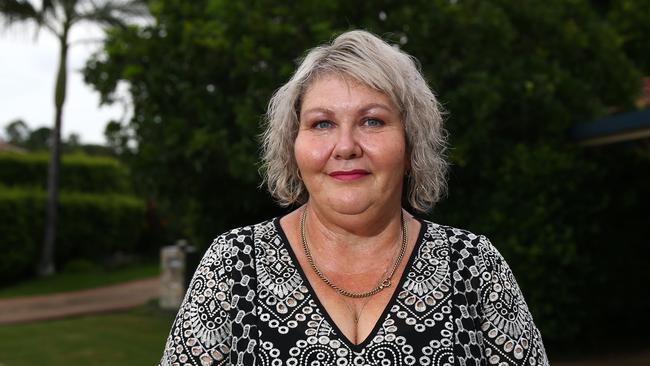
I have many incidents to report. Some would be considered minor and some would certainly rattle cages and show why women have had enough. I’ve been touched without consent, heard comments made in my presence about my physical attributes, again with no consent. And I’ve faced men who believed that as a woman I was somehow not as intelligent or as important.
The secret feelings all women have and don’t often discuss is that we have let ourselves down because we didn’t speak up, that we didn’t hold someone to account for their behaviour and actions. As women we are victimised twice; once due to the incident and then a second time because we didn’t take a stand. I am enough. I am here. And I demand to feel safe and secure in my workplace, my home and in the community.
Loretta Ryan, radio presenter
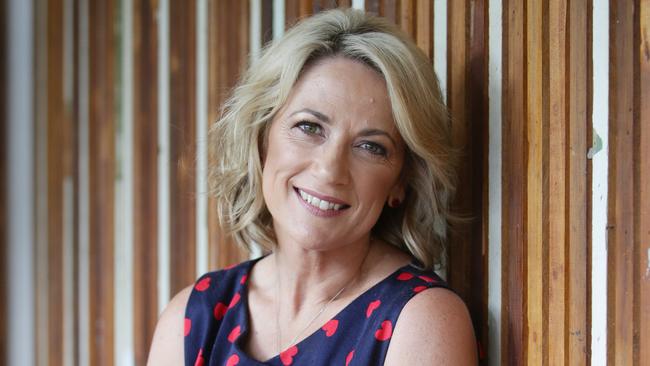
I hadn’t realised how anxious I was about my personal safety until I found myself walking to my car at night after visiting a friend in Royal Brisbane and Women’s Hospital.
I arrived at the hospital about 4pm, not expecting to stay so long.
I found myself walking to my car at 8pm, certainly not too late in the evening but late enough to make me feel uneasy.
During the walk to the car park, I became very much aware of my surroundings and the fact that I was alone and vulnerable.
To make matters worse, I had parked in the wrong car park, which was further away, and I really didn’t know where I was going.
A nurse had given me advice to walk along the front of the hospital but as I did that, the anxiety started to build.
My mind kept reverting to the recent news reports about a woman who had been attacked and killed while walking alone at night.
I started to run, tears welling. I looked at my surroundings and thought how easy it would be for someone to attack me.
I wondered if any of the cars driving past on the busy Bowen Bridge Rd would stop if they saw me struggling with a man, or would they not get involved.
My thoughts turned to how to defend myself.
By this time I was running faster, crying a bit harder and thinking of mum and dad sitting at home.
What a terrible shock it would be for them if something happened to me.
I had really worked myself up. As I approached the corner, I saw an ambulance parked in the driveway at the hospital.
With a shaky voice, I told them I was lost and couldn’t find where I had parked.
They told me to hop in and kindly drove me around the corner to the car park, watching as I walked to my car.
Earlier one of them had asked me why I was so worked up.
I’ve often asked myself that same question. Why did I get so anxious about my safety? How long have I felt like that?
The answer – always. Because women get attacked, through no fault of their own, while walking home.
It shouldn’t happen but it does.
It has to stop.
Sarah Wills, radio personality and Forty podcast co-host
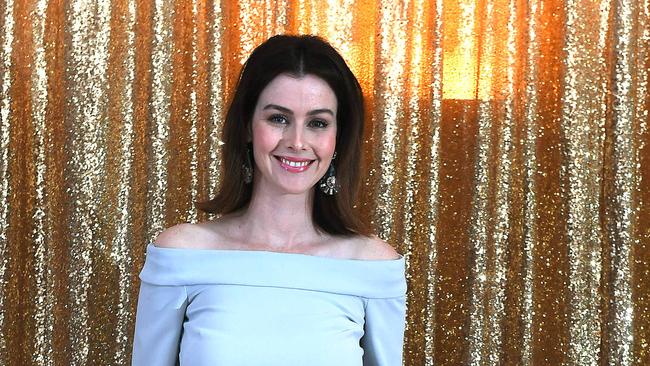
At 23, I signed up to a self-defence program with a group of girlfriends as a fun activity.
Held on a weeknight at a Brisbane university, there were a lot of young women in the class – which was led by a grey-bearded man, roughly in his 50s. (I can’t recall his name but for the purpose of this tale, let’s call him Dick.)
Over the course, we learned a manoeuvre to defend ourselves if, say, we were grabbed from behind at an ATM. Dick would wrap his arms around our chests, and our trained reaction was to pull down on his forearms to break the grip, while bending our knees to throw his body weight off our back, then drop him over a shoulder on to the mat.
After going for several weeks, it was my turn during class to practice this move with Dick, while the other students worked in pairs overseen by a younger male teacher.
Facing the back of the room, Dick wrapped his arms across my shoulders, which was not where he had put them before. I’m a tall woman, and asked him to bring his grip down across my chest to do it properly.
He did move his arms down – then nuzzled his head into the left side of my neck, squeezed my right breast three times, and said “Ooooh” into my ear with each squeeze.
Time seemed to stop: did the man I paid to teach me self-defence skills to protect me from men just grope me? Yes, he did. Somehow he let me throw him off.
What did I do? Absolutely nothing.
I was in total shock. I remember shaking, clamming up, not looking him in the eye. Nobody saw it happen.
I told my friends after the class, and never returned for the final few weeks.
The nice, younger instructor eventually asked why I wasn’t showing up, and a friend told him the truth. His reply to her? “Oh, not again.”




